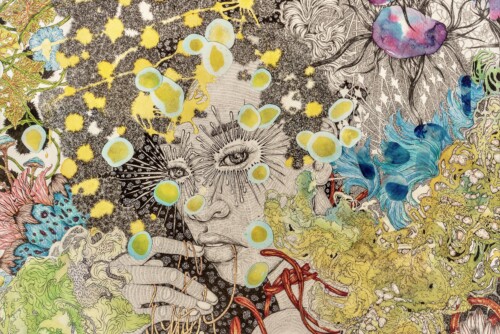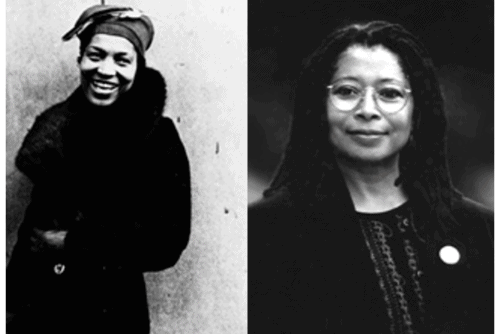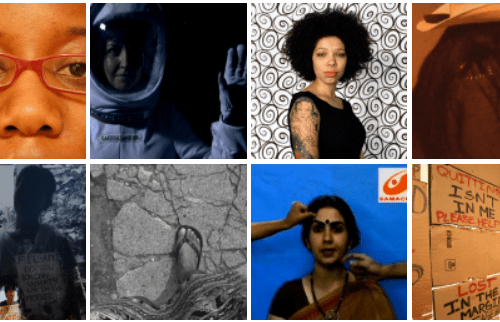November 2016
Michelle Cliff died privately in her home in Santa Cruz, California, on 12 June 2016. Her death was not reported by any mainstream media outlet until a week later, when the New York Times published an obituary.1 The Friday prior, Opal Palmer Adisa published a blog post announcing Cliff’s passing. What followed was a mix of social media responses, mostly asking for confirmation from some source that felt more citable than a personal tribute on a fellow writer’s site. Why wasn’t there more?
***
I am not a metaphor. My place of origin is not a metaphor. I inhabit my language, my imagination, more and more completely. It becomes me. I do not exist as a text. I’m spoken into being – as Leopold Sedar Senghor said of the world. I speak myself into being and with that speech my place of origin. I use this speech to craft fiction, which is not a record of myself, which is self-consciously – self-confidently – political. I do believe in the word, that a new world may be spoken into being.2
“I am not a metaphor,” she wrote, but it is very hard for us not to view the response to Cliff’s death – or, more accurately, the lack thereof – as a metaphor for how we value the lives of our writers, our women writers, our Caribbean women writers. “I am not a metaphor,” she wrote, but a metaphor represents or symbolizes some other entity and how many times has her “I” represented us? Symbolized us? Spoken to and about us? In her writings, Cliff wove together the personal and the political, not always seamlessly, but always with courage and clarity of purpose. Often she left the reader to draw conclusions from her offered observations. Using select resonant portions of her work as provocation I offer here a few fragmented notes – personal narrative, critical questioning, fragile connections – on the value accorded Cliff and other Caribbean writers, especially Caribbean women writers. It is my hope that the juxtapositions underscore the impact and continued import of Cliff’s work.
***
Such words conspire to make a past.
Such words conjure a knowledge.
Such words make assimilation impossible. They stay with you for years. They puzzle, but you sense a significance. I need these words.3
She speaks of her mother’s words, those odd phrases that insisted Jamaica into the North American space. But I hear them now as Cliff’s words, conjuring home. I found Claiming an Identity They Taught Me to Despise in a used bookstore in New York City. The slim, unassuming volume waited patiently to unleash its quiet genre-bending power: it was prose, it was poetry, it was my history. There are snatches of her writing that remain with me, floating in and out, echoing years after I first read them, often making new meaning in new contexts. In this age of hyper-sharing, online and in print, an age of the women’s memoir of the “one year I did this” and “another year I went there and did that” variety, what does it mean for Cliff to have shared her life with us? To have bravely used that life to address large questions of race, color, class, and colonialism? Her words remind us that memory is more than self-indulgence, that prose can be poetic, and that politics must be personal.
***
We are not exotic – or aromatic – or poignant.
We are not aberrations. We are ordinary.
All this has happened before.4
There are three corrections in the online New York Times obituary for Cliff. For some reason, they are not in chronological order, though each is headed with the date. The first, dated 22 June, and the third, dated 21 June, are to correct information about other people. Nestled between, almost cloaked in ordinariness, is the 20 June correction of the spelling of Cliff’s name in the headline, from “Michele” to “Michelle.” The question of why the obituary was a week in coming may have multiple, complex, and interlocking answers.
((Barbadian Canadian writer Austin Clarke also died that June and his obituary ran in the New York Times the day after his death. “Austin Clarke, Canadian Author Who Explored Black Experience, Dies at 81,” New York Times, 27 June 2016, https://www.nytimes.com/2016/06/28/books/austin-clarke-canadian-author-who-explored-black-experience-dies-at-81.html.)) They may be answers unique to Cliff and her insistence on privacy even as she bares herself to us in her work. But this glaring inaccuracy can only speak of carelessness, of not just oversight, but of a failure to see. A failure that has happened before. A failure that repeats each time we visit the URL that still reads “Michele.”
***
I wanted to be the lone figure on the landscape.
The cat burglar passing silent in the night.
The fast driver – unaffiliated – unnoticed.
This is not how it is.5
“This is not how it is.” Because Cliff is affiliated, claimed. A colleague emails me in late August: “It was interesting to see, after reading your sx salon 22 introduction, that my latest issue of Lesbian Connection arrived containing an obituary for Cliff. I guess you could say that we too claim her as ‘one of our own.'” It reads very similar to the New York Times obituary, sometimes word for word, as though there were a press release from which the two begin. Except, here, she is Michelle.
“Passing silent in the night.” But then, this is how it is. I am at a conference in Jamaica. It is October, four months after Cliff’s death. There are two tributes scheduled, one to Austin Clarke, and one to Cliff. They were to open the conference but have been rescheduled for a later time because Hurricane Matthew has disrupted the planned beginning of the conference, despite choosing Haiti over Jamaica. During the first social gathering – there are always social gatherings at these Caribbean literature conferences – another scholar asks me if I think Cliff will show up. Cliff continues passing. Unnoticed.
The picture in the Lesbian Connection obituary is the same as the one in the New York Times obituary. I am curious about this repetition of her image. I Google “Michelle Cliff.” There are only three photos.
***
They were unable to recognize the simplicity of her actions. They were held by the same system her actions encompassed. All she was in those actions escaped them – except the obvious.6
This is who I am. I am not what you allow me to be. Whatever you decide me to be.7
Cliff was not embraced by all. Her feminism was too American, her Blackness too tenuous. Nevertheless, she consistently strove to claim an identity she was taught to despise. And as she succinctly states in a 1994 interview, that identity was Jamaican and Black.8
What is this Blackness that Cliff claims? It matters that the identity she focuses her energies on building for herself is Jamaican and Black. The link is not merely additive, but relational. It requires that we consider the multiplicities of Blackness – multiplicities that spring from the chronologies and the geographies of Blackness. If race is a construct, how has Blackness been constructed in different times and places? How do past constructions engender current and future constructions globally? These are questions that Cliff embraced and embodied. Her body and her body of work escaped easy recognition, even as she insisted on claiming specific identities. She forced readers to examine how claims are staked and identities forged, and the privileges inherent in choice.
***
One of the effects of assimilation, indoctrination, passing into the anglocentrisim of British West Indian culture is that you believe absolutely in the hegemony of the King’s English and in the form in which it is meant to be expressed. Or else your writing is not literature; it is folklore, and folklore can never be art … The Anglican ideal – Milton, Wordsworth, Keats – was held before us with an assurance that we were unable, and would never be enabled, to compose a work of similar correctness. No reggae spoken here.9
I am a doctoral student in an English program, preparing for my comprehensive exams. There are four set categories of texts to study – period, author, genre, method – but students choose a focus within these categories. I decide to study twentieth-century Caribbean literature for the period exam. The graduate director requests I meet with her to discuss my exam lists. She informs me that I cannot take an exam in Caribbean literature, and suggests I do the African American tradition instead. “Is there even enough Caribbean work to make a canon?” she asks. This in 2003. “Your writing is not literature.” No reggae studied here.
***
Again I pushed this knowledge, his loss, down and down and down and thought I had forgotten all about it. I left Jamaica and returned to London, where I was in graduate school. But this history would not die. Although I thought I had forgotten it, it had entered into my body.10
The body remembers. The body keeps score. The body demands payment. The cost is high for our Caribbean women writers, our women writers of color:
-
- Zora Neale Hurston
-
- Marie Vieux-Chauvet
-
- Barbara Christian
-
- Julia de Burgos
-
- Audre Lorde
-
- Claudia Jones
-
- Octavia Butler
-
- June Jordan
-
- Toni Cade Bambara
-
- Mahadai Das
-
- Gloria Naylor
- Michelle Cliff
***
If in our remembrance we find the depth of our history
Will we opt for description only
Or choose to ignite the fuse of our knowledge?11
- Michelle Cliff, Who Wrote of Colonialism and Racism, Dies at 69,” New York Times, 18 June 2016, https://www.nytimes.com/2016/06/19/books/michele-cliff-who-wrote-of-colonialism-and-racism-dies-at-69.html. [↩]
- Michelle Cliff, If I Could Write This in Fire (Minneapolis: University of Minnesota Press, 2008), 58. [↩]
- Michelle Cliff, “Claiming an Identity,” in Land of Look Behind (Ithaca, NY: Firebrand Books, 1985), 21. [↩]
- Michelle Cliff, “Passing,” in Land of Look Behind, 23. [↩]
- Michelle Cliff, “Travel Notes,” in Land of Look Behind, 53. [↩]
- Michelle Cliff, Abeng (New York: Penguin, 1984), 149. [↩]
- Cliff, If I Could Write This in Fire, 25. [↩]
- Opal Palmer Adisa, “Journey into Speech – A Writer between Two Worlds: An Interview with Michelle Cliff,” African American Review 28, no. 2 (Summer 1994): 275. [↩]
- Michelle Cliff, “Journey into Speech,” in Land of Look Behind, 13. [↩]
- Michelle Cliff, “A Theatre of Violence behind a Curtain of Paradise,” Anglistica 14, no. 1 (2010): 23. [↩]
- Michelle Cliff, “Women’s Work,” in Claiming an Identity They Taught Me to Despise (Watertown, MA: Persephone Press, 1980), 42. [↩]




